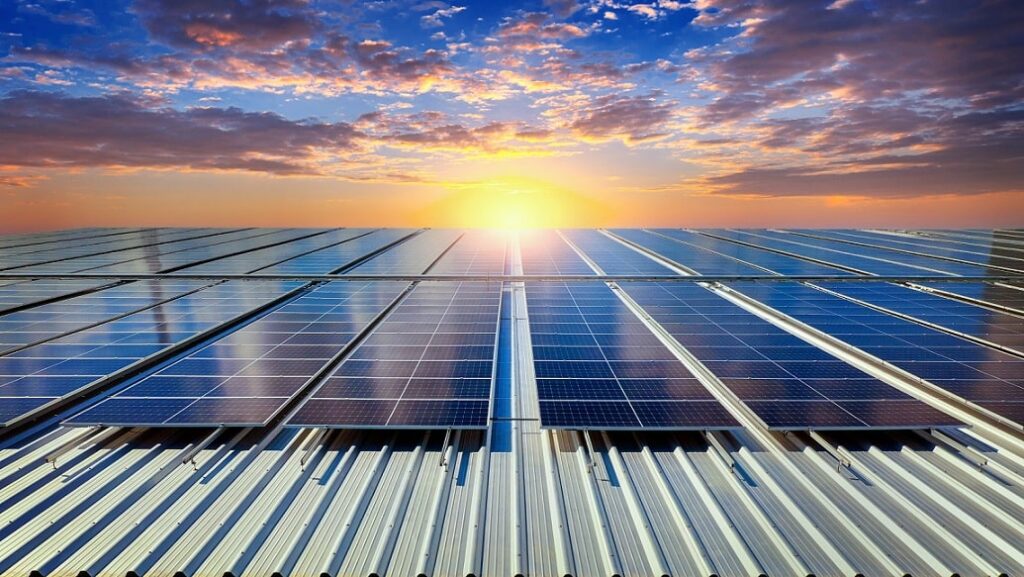In today’s competitive and environmentally conscious world, businesses are always looking for smart ways to lower costs, build trust with their customers, and protect their operations from future uncertainties. One solution that’s rapidly gaining traction is solar energy.
Installing solar panels isn’t just a trend—it’s a long-term investment that offers both economic and environmental rewards. Whether you’re a small business or a large enterprise, making the switch to solar can make a meaningful impact. Here’s an in-depth look at the top 8 benefits of installing solar panels for your business, plus some essential considerations to keep in mind.
Table of Contents
- 1 8 Benefits of Installing Solar Panels
- 1.1 1. Significant Cost Savings Over Time
- 1.2 2. Positive Environmental Impact
- 1.3 3. Greater Energy Independence
- 1.4 4. Attractive Tax Incentives and Government Support
- 1.5 5. Enhanced Brand Image and Public Perception
- 1.6 6. Reliable Long-Term Investment
- 1.7 7. Customizable and Scalable to Your Needs
- 1.8 8. Increased Resilience During Power Outages
- 2 Additional Considerations Before Installing Solar Panels
8 Benefits of Installing Solar Panels
1. Significant Cost Savings Over Time
Solar panels help reduce your business’s electricity bill from day one. Once installed, the panels begin generating free electricity using sunlight. This reduces your dependency on your local utility company and protects your business from rising electricity rates.
- Example: A mid-sized office building in a sunny area could cut its electricity bill by 50–70% annually.
- Some states even allow net metering, where excess power your system generates is sent back to the grid, giving you bill credits.
2. Positive Environmental Impact
Solar power is clean, renewable, and abundant. By switching to solar energy, your business can reduce its reliance on fossil fuels and help fight climate change by lowering harmful emissions.
- One average commercial solar system can offset over 100,000 pounds of carbon dioxide per year.
- Supporting renewable energy also aligns your company with sustainable development goals (SDGs).
3. Greater Energy Independence
Depending on traditional energy sources means being at the mercy of fluctuating energy prices and supply disruptions. With your own solar energy system, your business becomes more self-reliant and less exposed to market volatility.
- With battery storage systems, you can even store excess energy and use it during peak hours or outages.
4. Attractive Tax Incentives and Government Support
Governments at federal, state, and local levels often provide generous incentives to support solar adoption.
- Federal Investment Tax Credit (ITC) in the U.S. allows you to deduct up to 30% of the system cost from your taxes.
- Local rebates, grants, and accelerated depreciation programs can further reduce the payback period.
Check with your accountant or local energy authority to see which benefits your business qualifies for.

5. Enhanced Brand Image and Public Perception
Today’s consumers and clients prefer to support eco-conscious companies. By going solar, you signal that your business cares about sustainability and future generations.
- You can market your commitment to clean energy in your branding, PR campaigns, and on-site signage.
- This can increase customer loyalty and even attract new clients who value social responsibility.
6. Reliable Long-Term Investment
Although solar systems require an upfront investment, they offer long-term returns with minimal maintenance. Most commercial-grade panels come with a 25–30 year performance warranty.
- After the break-even point (often within 5–7 years), your savings are essentially pure profit.
- The panels are durable, weather-resistant, and have no moving parts, which keeps repair costs low.
7. Customizable and Scalable to Your Needs
Solar energy systems are flexible and can be tailored to fit various business types and property layouts.
- You can install panels on rooftops, unused land, parking lot canopies, or as ground-mounted systems.
- Need more power as your business grows? Simply expand your solar array with additional panels.
This scalability makes solar a future-proof solution that grows with your business.
8. Increased Resilience During Power Outages
Unplanned outages and grid failures can bring business operations to a halt, leading to lost productivity and revenue.
This is especially useful for data centers, medical offices, or retail stores that require uninterrupted power.
Solar systems paired with battery storage can keep critical systems running even when the grid goes down.
Additional Considerations Before Installing Solar Panels
While the benefits are substantial, it’s essential to plan carefully before making the switch to solar energy. Here are a few things to consider:
- Sunlight Exposure: Not all rooftops or sites are ideal. Buildings surrounded by tall trees or in shaded areas may get less energy output.
- Upfront Costs: Although prices have dropped significantly in recent years, solar systems still require a capital investment. Financing options like loans, leases, or power purchase agreements (PPAs) can help.
- Permits and Regulations: Local building codes and utility policies may affect your installation. Working with an experienced solar provider in your area can simplify this process.
- Maintenance: While minimal, some upkeep like occasional panel cleaning or inverter replacement may be required over time.
Installing solar panels is more than a smart financial decision—it’s a statement about your business’s values and long-term vision. From reducing electricity costs to enhancing your company’s reputation, solar power offers a wide range of benefits that make it well worth the investment.
By partnering with a reputable solar provider, analyzing your energy needs, and taking advantage of available incentives, your business can confidently transition toward a cleaner, more resilient future—joining the growing movement of sustainable businesses that are leading the way in environmental responsibility and smart energy practices.

